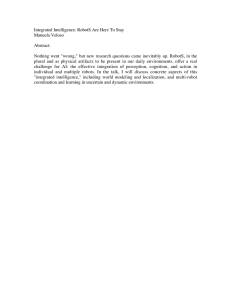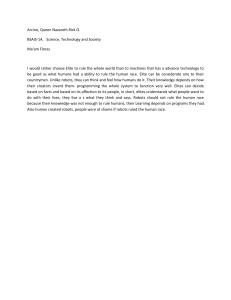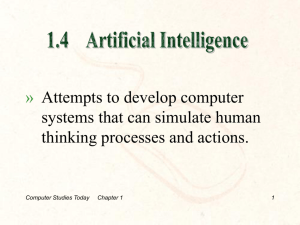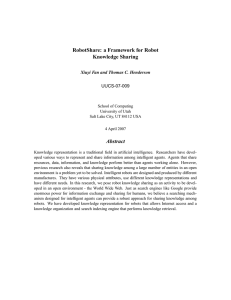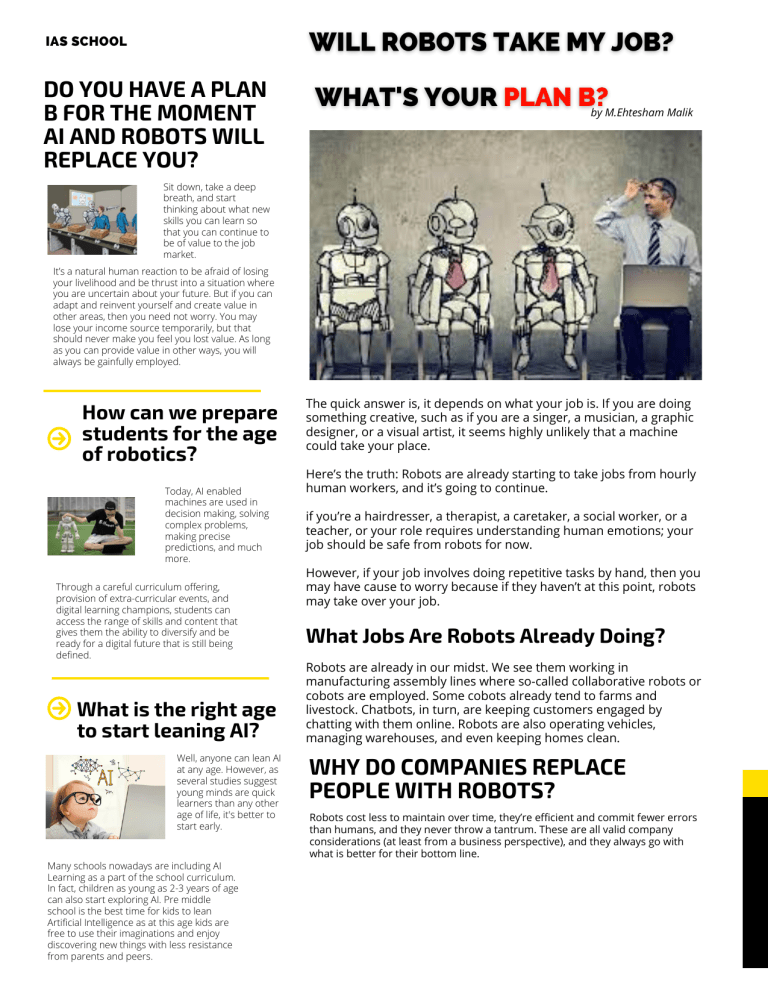
IAS SCHOOL DO YOU HAVE A PLAN B FOR THE MOMENT AI AND ROBOTS WILL REPLACE YOU? by M.Ehtesham Malik Sit down, take a deep breath, and start thinking about what new skills you can learn so that you can continue to be of value to the job market. It’s a natural human reaction to be afraid of losing your livelihood and be thrust into a situation where you are uncertain about your future. But if you can adapt and reinvent yourself and create value in other areas, then you need not worry. You may lose your income source temporarily, but that should never make you feel you lost value. As long as you can provide value in other ways, you will always be gainfully employed. How can we prepare students for the age of robotics? Today, AI enabled machines are used in decision making, solving complex problems, making precise predictions, and much more. Through a careful curriculum offering, provision of extra-curricular events, and digital learning champions, students can access the range of skills and content that gives them the ability to diversify and be ready for a digital future that is still being defined. What is the right age to start leaning AI? Well, anyone can lean AI at any age. However, as several studies suggest young minds are quick learners than any other age of life, it's better to start early. Many schools nowadays are including AI Learning as a part of the school curriculum. In fact, children as young as 2-3 years of age can also start exploring AI. Pre middle school is the best time for kids to lean Artificial Intelligence as at this age kids are free to use their imaginations and enjoy discovering new things with less resistance from parents and peers. The quick answer is, it depends on what your job is. If you are doing something creative, such as if you are a singer, a musician, a graphic designer, or a visual artist, it seems highly unlikely that a machine could take your place. Here’s the truth: Robots are already starting to take jobs from hourly human workers, and it’s going to continue. if you’re a hairdresser, a therapist, a caretaker, a social worker, or a teacher, or your role requires understanding human emotions; your job should be safe from robots for now. However, if your job involves doing repetitive tasks by hand, then you may have cause to worry because if they haven’t at this point, robots may take over your job. What Jobs Are Robots Already Doing? Robots are already in our midst. We see them working in manufacturing assembly lines where so-called collaborative robots or cobots are employed. Some cobots already tend to farms and livestock. Chatbots, in turn, are keeping customers engaged by chatting with them online. Robots are also operating vehicles, managing warehouses, and even keeping homes clean. WHY DO COMPANIES REPLACE PEOPLE WITH ROBOTS? Robots cost less to maintain over time, they’re efficient and commit fewer errors than humans, and they never throw a tantrum. These are all valid company considerations (at least from a business perspective), and they always go with what is better for their bottom line.
